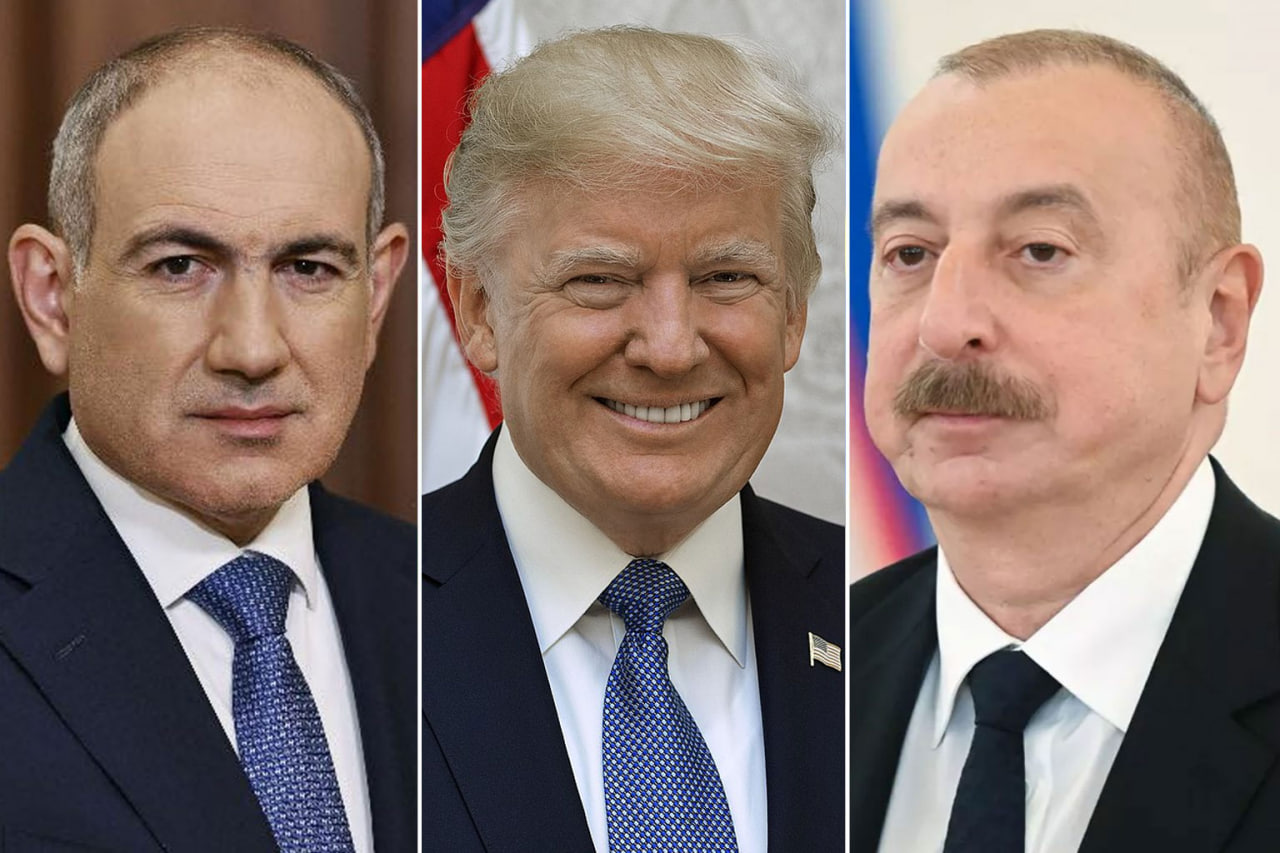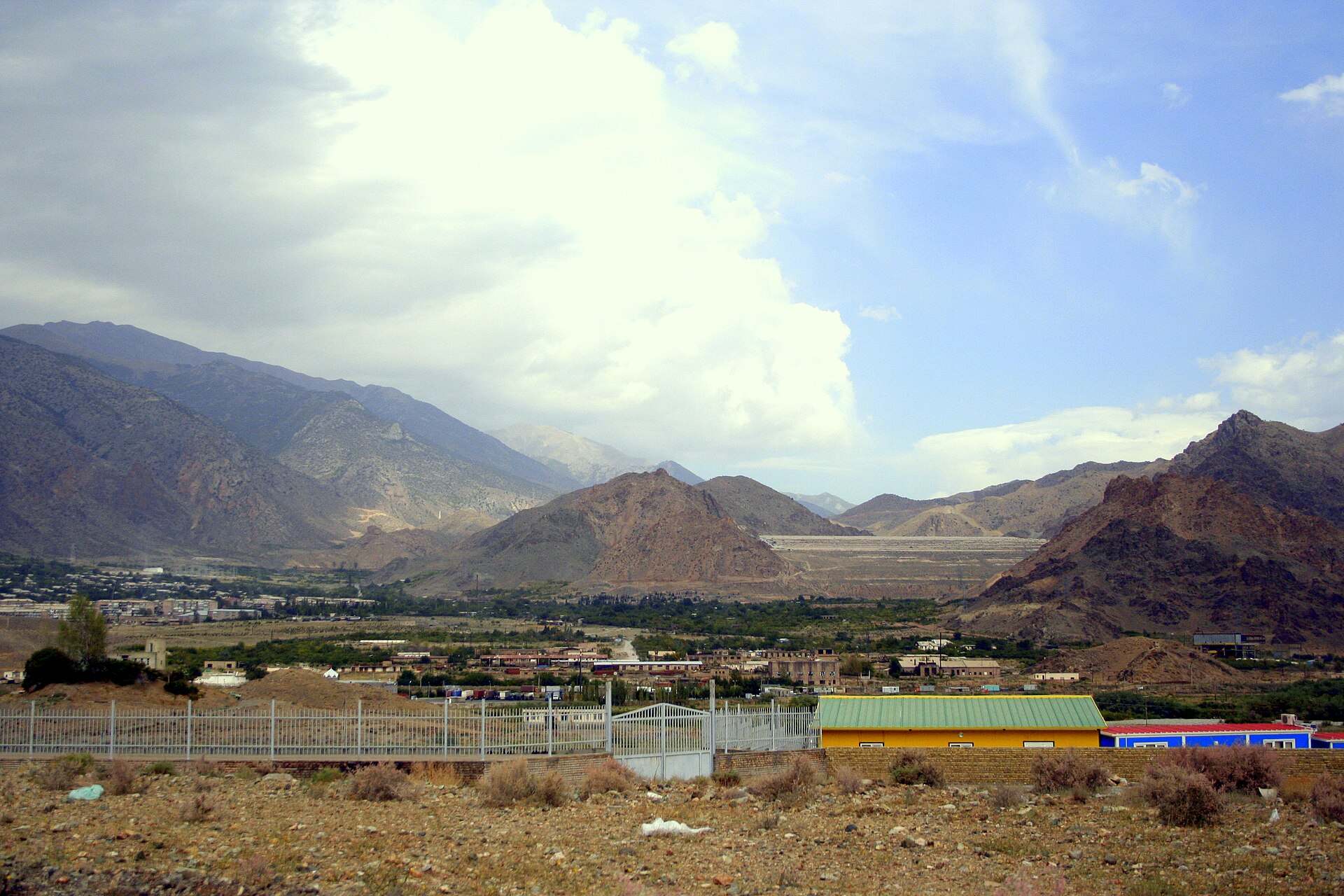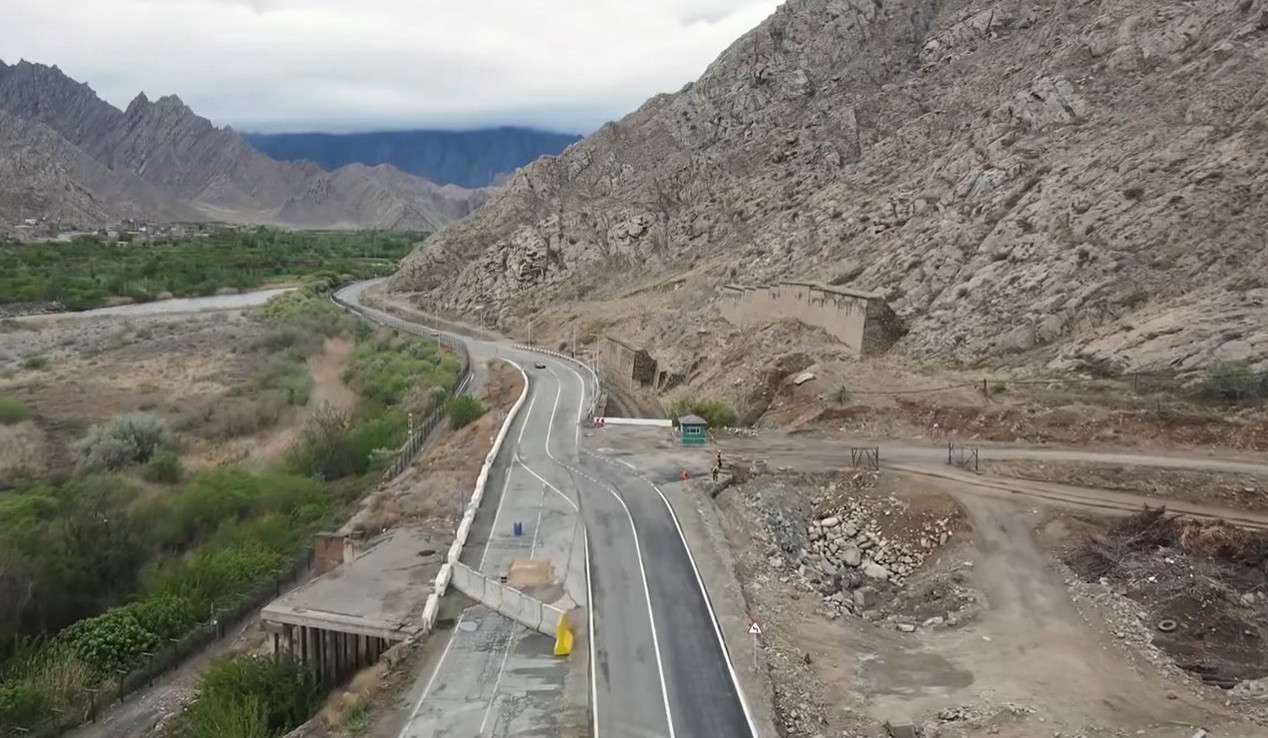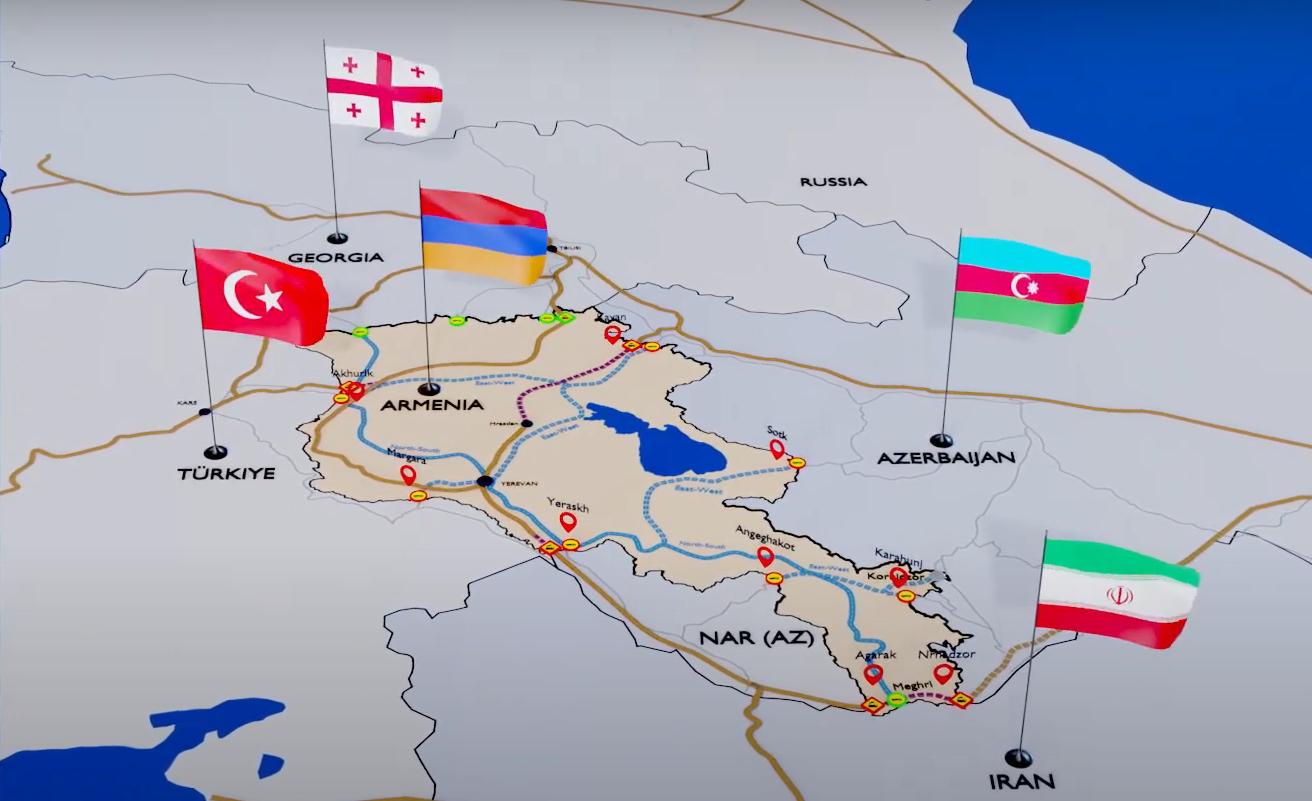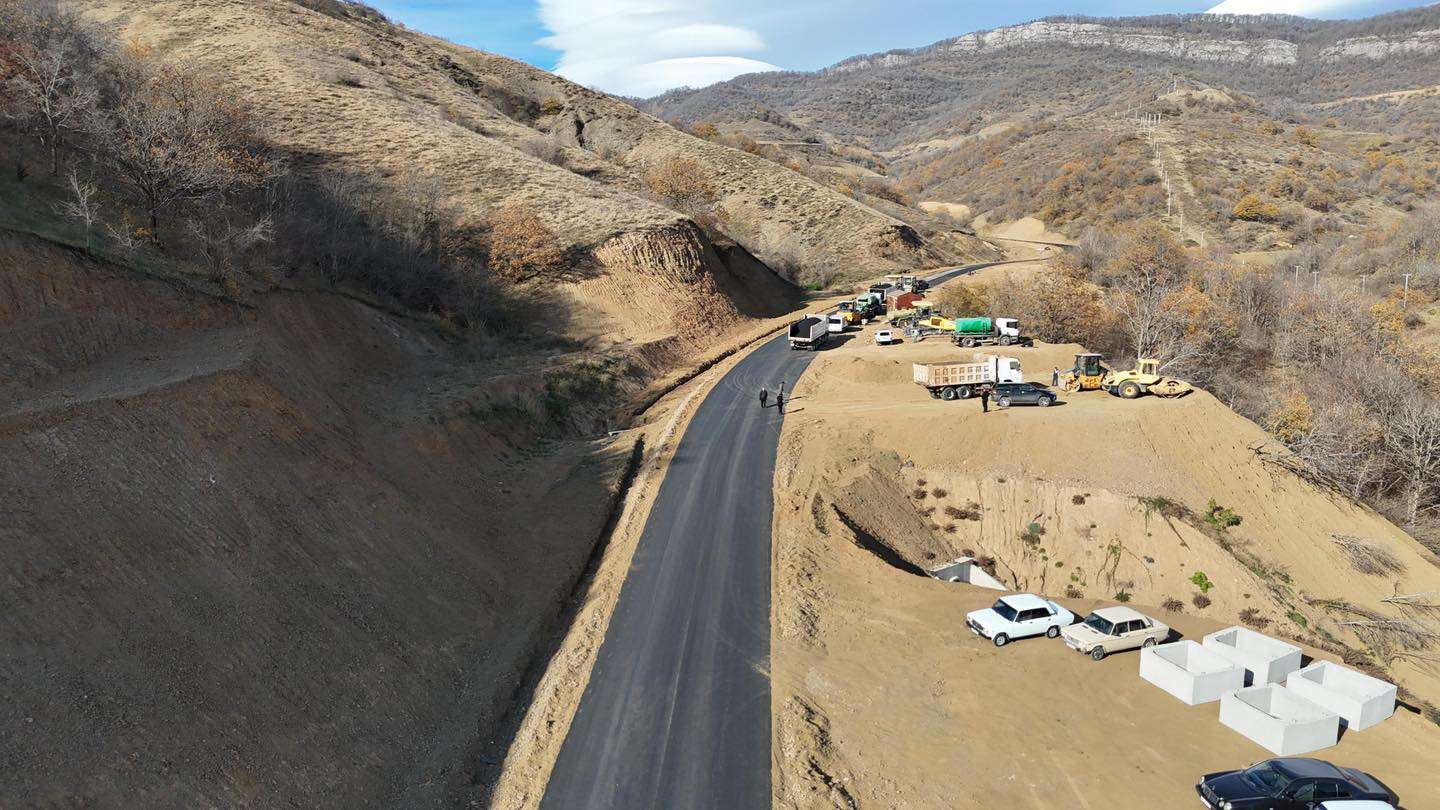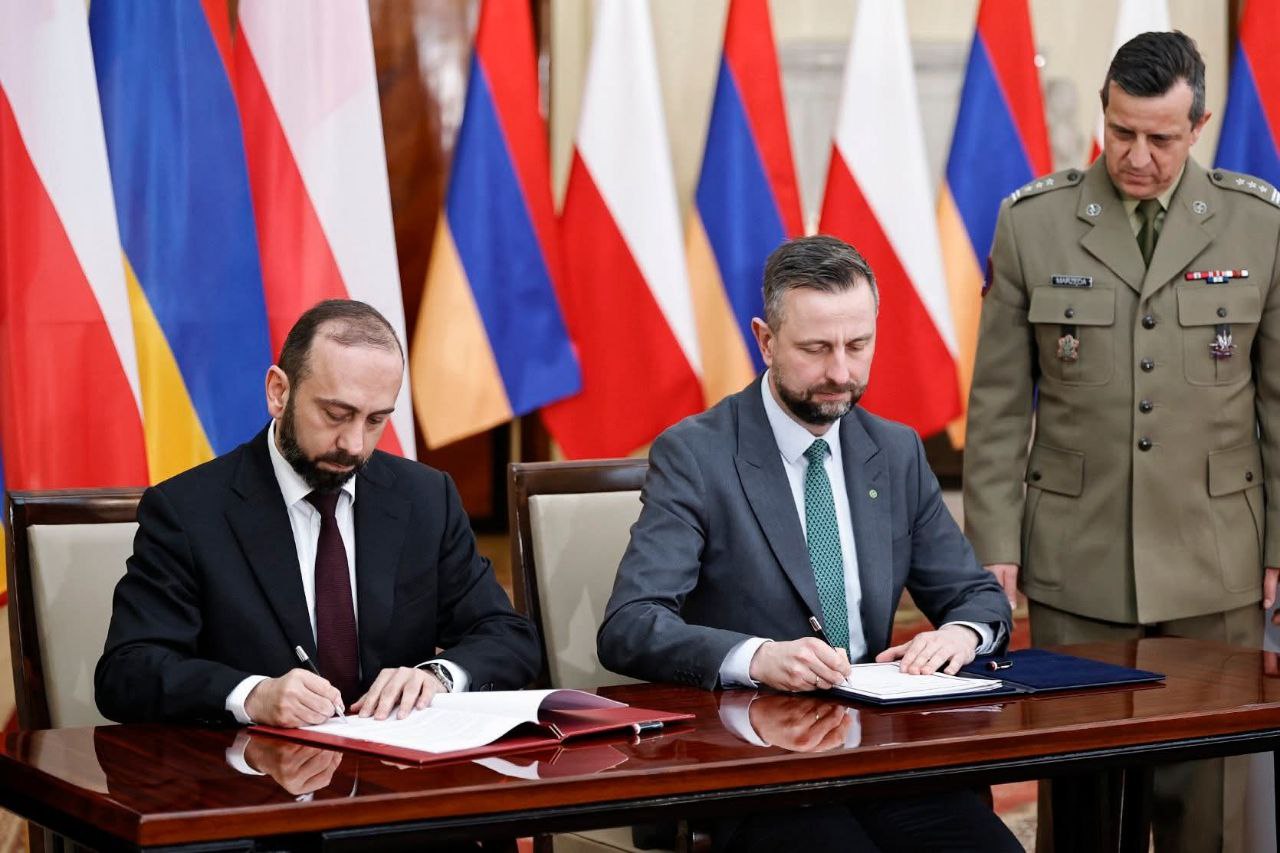‘Historic summit’: Armenia and Azerbaijan sign documents with Trump’s mediation
Trump – Pashinyan – Aliyev meeting
Meeting between Trump, Pashinyan, and Aliyev took place in Washington. After the meeting, the US president thanked the leaders of Armenia and Azerbaijan for the courage they had shown in ending a decades-long conflict. “They fought for 35 years, and now they are friends and will remain friends for a long time. Their names will go down in history,” the US president said.
The peace treaty between Armenia and Azerbaijan, agreed back in March, has not yet been signed. Immediately after the agreement, Baku put forward additional demands. However, in Washington, Pashinyan and Aliyev signed a memorandum expressing their intention to sign the peace treaty. Trump added his own signature to the document as a mediator and witness.
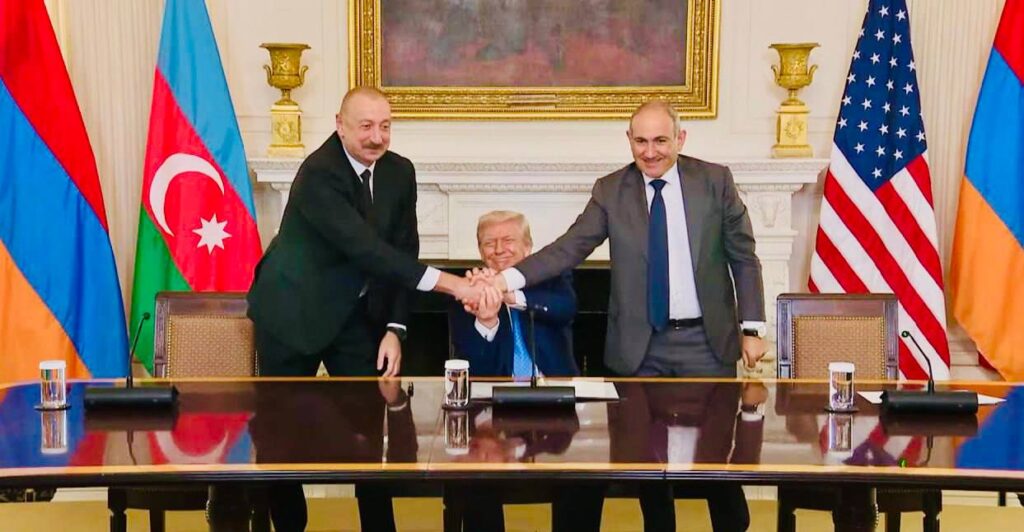
Mediated by US president Donald Trump, the talks also produced an agreement on unblocking regional transport links.
The sides agreed to open a road connecting mainland Azerbaijan with its exclave, Nakhichevan. It will be called the “Trump route” (Trump Route for International Peace and Prosperity — TRIPP) and will be managed by an Armenian–American consortium.
However, the route will not have extraterritorial status, as Baku had demanded when referring to it as the “Zangezur corridor.” Armenia’s sovereignty and jurisdiction over the road will remain intact.
“The ‘Trump route’ will allow Azerbaijan to access Nakhichevan while fully respecting Armenia’s sovereignty,” Donald Trump said.
Just a few hours before the trilateral meeting, Azerbaijani journalist Alex Raufoglu, accredited to the White House, reported that negotiations on the “Trump route” would start next week. The US administration will begin forming working groups for its implementation. “The White House said that nine different operators have already expressed interest in taking part in the project — three of them from the United States,” he noted.
The agreements reached in Washington, the discussions on unblocking transport, and the views of Armenian analysts are all explored in detail.
- “Baku’s goal is to subjugate Armenia to Azerbaijan”: views from Yerevan
- Armenia wants to join EU but won’t damage ties with Russia: Pashinyan’s press conference
- “Baku weighing U.S. proposal”: Pashinyan-Aliyev talks in Abu Dhabi
- “Armenia could lose control over unblocked transport routes”: Opinion from Yerevan
On the signed documents
The documents signed following the trilateral meeting have not yet been published. Judging by the statements made by the leaders after the talks, it can be concluded that:
- the Armenia–Azerbaijan peace agreement has been initialled,
- a joint declaration on the “Trump Route” has been signed,
- bilateral agreements between the United States and Armenia, and between the United States and Azerbaijan, have been signed in the fields of energy, trade, and technology, including artificial intelligence.
In addition, in his remarks, Azerbaijani president Ilham Aliyev mentioned the OSCE Minsk Group and declared that its work had been completed. It is not yet clear whether Yerevan and Baku have submitted a joint request to dissolve this body or have announced their withdrawal from it.
Trump – Pashinyan – Aliyev meeting
Joint declaration following the meeting in Washington
We, the President of the Republic of Azerbaijan, the Prime Minister of the Republic of Armenia and the President of the United States of America, having met in Washington D.C., United States of America, on August 8th, 2025, declare the following:
1. We and President Donald J. Trump of the United States of America witnessed the initialing of the agreed upon text of the Agreement on Establishment of Peace and Inter-State relations between the Republic of Azerbaijan and the Republic of Armenia by the Ministers of Foreign Affairs of the Parties. In this respect, we acknowledged the need to continue further actions to achieve the signing and ultimate ratification of the Agreement, and emphasized the importance of maintaining and strengthening peace between our two countries;
2. We also witnessed the signing of the joint appeal to the Organization for Security and Cooperation in Europe (OSCE) on the closure of OSCE’s Minsk Process and related structures by the Ministers of Foreign Affairs of the Republic of Armenia and the Republic of Azerbaijan. We call on all OSCE participating States to adopt this decision.
3. We reaffirmed the importance of the opening of communications between the two countries for intra-state, bilateral, and international transportation for the promotion of peace, stability, and prosperity in the region and in its neighborhood on the basis of respect for the sovereignty, territorial integrity, and jurisdiction of the States. These efforts are to include unimpeded connectivity between the main part of the Republic of Azerbaijan and its Nakhchivan Autonomous Republic through the territory of the Republic of Armenia with reciprocal benefits for international and intra-state connectivity for the Republic of Armenia.
4. The Republic of Armenia will work with the United States of America and mutually determined third parties, to set forth a framework for the “Trump Route for International Peace and Prosperity” (TRIPP) connectivity project in the territory of the Republic of Armenia. We confirm our determination to pursue efforts in good faith to achieve this goal in the most expeditious manner.
5. We acknowledge the need to chart a course for a bright future not bound by the conflict of the past, consistent with the Charter of the United Nations and the 1991 Almaty Declaration. The conditions have been created for our nations to finally embark on building good neighborly relations on the basis of the inviolability of international borders and the inadmissibility of the use of force for the acquisition of territory after the conflict that brought immense human suffering. This reality, which is not and should never be subject to revision, paves the way for closing the chapter of enmity between our two nations. We resolutely reject and exclude any attempt of revenge, now and in the future.
6. We express our confidence that this Summit is a strong foundation for mutual respect and the advancement of peace in the region.
7. We express deep gratitude to President Donald J. Trump of the United States of America for his gracious hospitality in hosting this important summit and for his significant contributions to advancing the normalization of bilateral relations between the Republic of Azerbaijan and the Republic of Armenia.
Media on the “Trump route”
Reuters reported that the road linking Azerbaijan with Nakhichevan will operate in accordance with Armenian law:
“The US will sublease the route to an infrastructure and management consortium.”
According to the Armenian outlet Factor TV, the route will be managed by an Armenian–American consortium. The US will assume responsibility for financing the creation of the infrastructure, which will be built and then managed jointly.
The publication emphasises what most concerned Armenian society:
“There will be no transfer of property rights over the designated territory; the road will retain the status of sovereign Armenian territory. Armenian state bodies will have the right to carry out any work on this territory. For example, if a crime occurs on the road, they will have access to it and will perform the necessary legal actions — just as they would in any other part of Armenia.”
‘A historic day for Armenia, Azerbaijan, the US and the world’ — Trump
In a post on the social network Truth Social, US president Donald Trump described the talks at the White House as a ‘historic peace summit’. He stressed that the day would be historic not only for Armenia, Azerbaijan and the United States, but also for the entire world:
“These two nations have been at war for many years, resulting in the deaths of thousands of people. Many leaders have tried to end the war, with no success, until now, thanks to “TRUMP.” My Administration has been engaged with both sides for quite some time.
Tomorrow, President Aliyev and Prime Minister Pashinyan will join me at the White House for an official peace signing seremony. The United States will also sign bilateral agreements with both countries to pursue economic opportunities together, so we can fully unlock the potential of the South Caucasus region. I am very proud of these courageous leaders for doing the right thing for the great people of Armenia and Azerbaijan. It will be a historic day for Armenia, Azerbaijan, the United States, and, the world.”
Trump – Pashinyan – Aliyev meeting
Unresolved issues remain
Referring to its sources in the White House, the Armenian bureau of Radio Liberty published a list of issues that the Washington meeting does not resolve:
- Signing the actual peace treaty itself,
- One of Baku’s preliminary conditions for signing the treaty remains: changing Armenia’s constitution (Azerbaijan demands removing the reference to the Declaration of Independence, which mentions Armenia’s reunification with Nagorno-Karabakh),
- Not all regional communications will be unblocked (so far, only the road connecting Azerbaijan to Nakhichevan is discussed),
- The issue of the return of Karabakh Armenians to their homeland will not be resolved,
- Armenians detained in Baku will not be released.
Unblocking the region or granting a road to Azerbaijan?
Since July, Washington has been discussing a proposal with Yerevan and Baku to unblock regional communications. It involves handing control of a road to an American company. However, the specific functions it will perform remain unclear.
Armenia’s parliamentary opposition is convinced that this is not about unblocking all communications, but only about granting a land route connecting Azerbaijan with Nakhichevan.
During the latest press conference, Armenia’s prime minister was asked whether all roads would be unblocked at once. Pashinyan left the question unanswered. However, in March 2025, he gave a clear answer:
“Communication between Azerbaijan and Nakhichevan through the territory of the Republic of Armenia is a subtopic within the broader topic of unblocking all regional communications.”
Armenian analysts still have questions
Journalist and analyst Tatul Hakobyan writes:
“I have several questions, and I’m sure there is no agreement on these issues:
- When or if we grant Azerbaijan the opportunity to connect with Nakhichevan, what will Baku offer us in return? What road will they open for us?
- If, for example, Azerbaijan opens the Yeraskh-Meghri road, who will control our cargo?
- The road granted to the Americans will intersect at least at one point with the Armenia-Iran road; has a solution been found for this issue?”
Political analyst Hovsep Khurshudyan is interested in the following questions:
- It’s unclear to what extent reciprocity will be ensured in unblocking the roads.
- It’s unclear what sanctions are planned for the party that violates the agreements on unblocking the roads.
Follow us – Twitter | Facebook | Instagram
Trump – Pashinyan – Aliyev meeting










